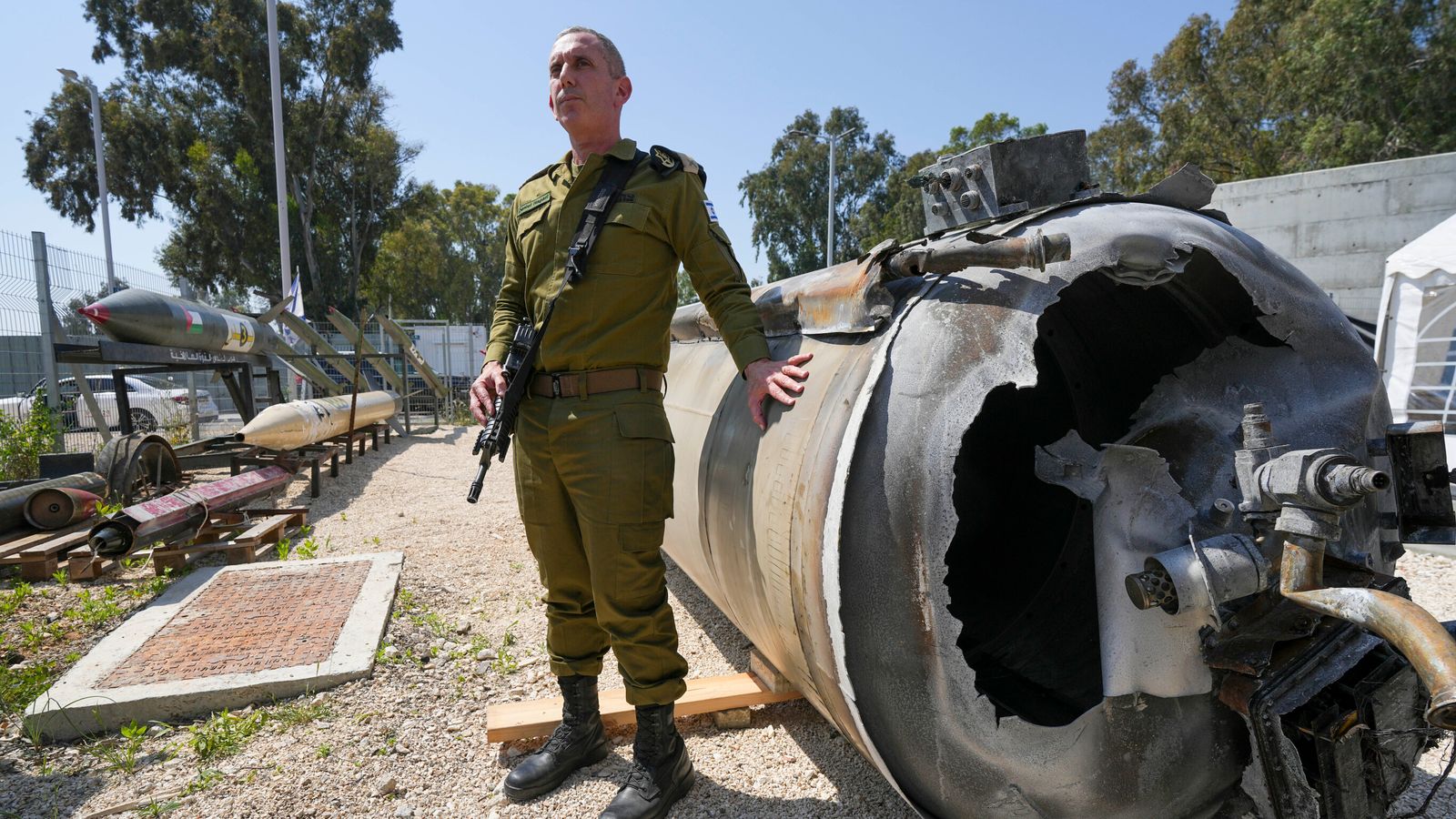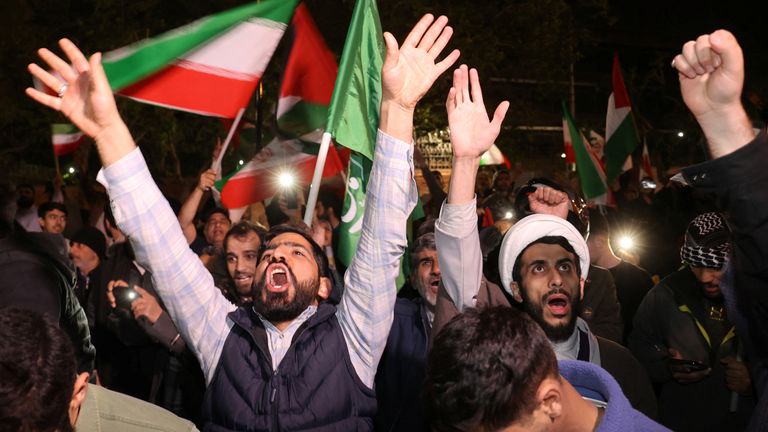When the first pictures of downed Iranian rockets emerged on Sunday morning, they didn’t look real.
Even seasoned military spokesman Peter Lerner was fooled. “I thought it was fake news,” he told Sky News.
The huge black tubes littering the Dead Sea and other parts of Israel seemed too colossal to be genuine.
We had seen them on the back of trucks on parade in Tehran but not fired in anger before.
Middle East latest:
Hezbollah commander killed in strike, IDF says
In a military base near the coast, we were shown the fuel tank for an Emad or ‘Pillar of Strength’ missile intercepted as it entered Israeli airspace that night.
It is 11 metres long, but with a warhead the size of a small car, it would have been even bigger at launch.
It has a range of 1,000 miles, a payload of half a tonne of explosives, is accurate to 10 metres and on Saturday was fired by the dozen at Israel.
Standing next to it, suddenly the claims that Iran‘s attack was in any way a token effort or symbolic seem absurd.
If any one of those ballistic missiles had reached an Israeli population centre it would have been devastating.
Showing the rocket to journalists, Israeli military spokesman Daniel Hagari said the attack would not go unpunished.
He said: “Firing 110 ballistic missiles, directly to Israel, will not get off scot-free. We will respond. In our time. In our place. The way that we will choose.”
There is reportedly intense debate in the Israeli government about how that will happen.
The government is under pressure to strike back hard and quickly, to exact a high price that will deter Iran from ever aiming such missiles at Israel again.
But others fear that could jeopardise the coalition of allies and neighbours which helped protect Israel that night.
David Horovitz, editor of the Times of Israel and one of its most seasoned observers of the country’s international relations, told Sky News: “There’s concern that if you hit back, you risk shattering that coalition, you potentially prompt a further Iranian response and therefore a regional war, even potentially a world war.”
There is an opportunity. A chance to build on that coalition to create real international pressure on Iran not least to stop its alleged nuclear weapons programme.
But there is jeopardy too – with a huge amount at stake.
Read more:
Are we heading for World War Three?
Israel ‘knows what our second retaliation would be’ – Iran
Some reports claim Israel’s retaliation will stop short of an all-out attack on targets inside Iran, but that is by no means certain.
The coming hours could decide if the Middle East is plunged into a widening war or not.



